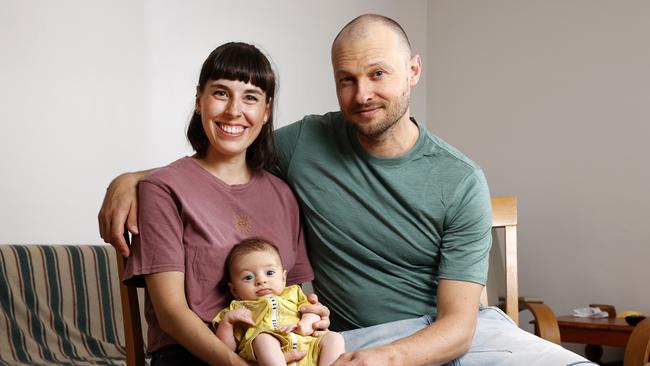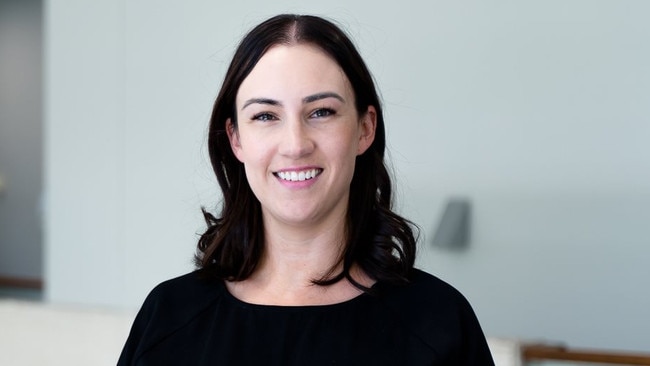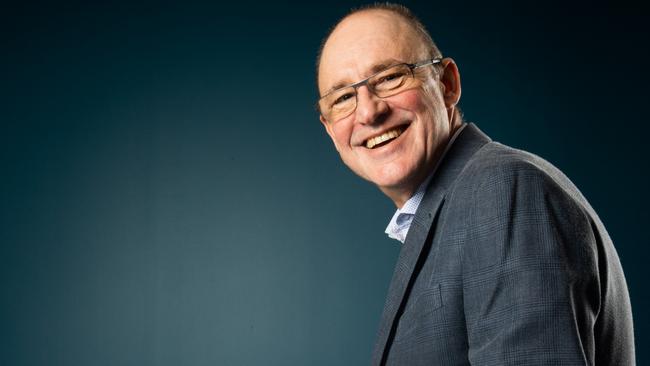Ranked: Australia’s best and worst IVF clinics
Men and women desperate for a baby can now check the success rates and see the best and worst performing IVF clinics across the nation. Search and see the full list.
Exclusive: Smaller boutique value for money IVF clinics are challenging the success rates of more expensive corporate giants.
Brisbane’s Care Fertility was the nation’s top performing clinic among women aged under 35 delivering a baby to 72.2 per cent of women, new data shows.
Fertility First in Sydney was third in the same age group with 62.1 per cent of women getting a baby, while Ballarat IVF in Victoria was also a top 10 performer with 57.6 per cent of its younger clients getting a baby.
All three clinics charge around a third less than corporate clinics for their services.
A News Corp investigation has found a massive variation in success rates among Australia’s IVF clinics with some clinics delivering babies at more than four times the rate of poorer performers.
Analysis of the latest IVF success rates reported on the Federal Government’s yourivfsuccess website shows Genea is the stand out performer with multiple clinics in the top 10 for both older and younger women.
Bigger clinics Monash IVF and IVF Australia had several high performing centres, but smaller operators such as Care Fertility in Brisbane, Fertility First in Sydney, Ballarat IVF and Repromed in Adelaide scored exceptionally well among younger women.
“The proportion of patients over 40 is getting bigger every year and it’s an uphill struggle,” City Fertility specialist and head of fertility research at the University of New South Wales Professor Bill Ledger said.
“Those eggs have been there since before the woman was born, the idea that you can change their quality in the last few weeks before you collect them by giving medications of some sort is a struggle.”
SEARCH THE TABLE BELOW:
News Corp revealed last year couples are now paying more than $15,000 for each IVF cycle and being left out of pocket by up to $5,688.
The performance of IVF clinics on the yourivfsucces website is measured in four ways by independent University of NSW experts.
Using the data we produced an interactive table of IVF success rates based on measure 1 which tracked the number of live births that resulted from the eggs (fresh or frozen) collected from women in 2019 that were fertilised and implanted as embryos in 2019 and 2020.
At the best performing clinics more than one in three women aged 35-42 were successful at getting a live birth.
At the least successful clinics just one in eight older women went home with a baby.
Analysis of the data shows a huge variation in performance even within the same clinic groups.

At Monash IVF’s most successful clinic in Bondi in Sydney’s eastern suburbs, 58.1 per cent of women aged under 35 got a baby in 2020 compared to just 16.1 per cent at its Sale clinic in Victoria.
More than 68.3 per cent of younger women at Genea’s Orange clinic in NSW went home with a baby compared to 42.1 per cent per cent at its Melbourne clinic.
Adora’s Sydney clinic delivered a baby to 48.9 per cent of younger women but only 31.6 per cent got a baby at its Perth clinic.
At IVF Australia’s North shore clinic in Sydney 54.7 per cent of younger women got a baby bit at its Canberra clinic only 30.2 per cent did.
Genea’s medical director Associate Professor Mark Bowman said just a few more or a few less pregnancies at smaller clinics treating fewer than 300 women can easily skew their performance rating.
Among older women, Genea’s Wollongong clinic and Monash IVF’s Auchenflower clinic in Brisbane were the top performers delivering babies to more than 38 per cent of women. However, both treated a small number of women.

Among clinics treating more than 300 women, Genea again led the field in treating women aged 35-42 and had four clinics in the top 10.
Up to three in four women aged under 35 went home with a baby, with that number dropping to just one in six at the worst performing.
Care Fertility in Brisbane had an astounding 72.2 per cent success rate but it is worth noting it treated only 91 women.
Associate Professor Bowman said Genea’s high success rate was due to all its equipment being in-house and developed by its biotech arm.
“We’ve done lots of studies to show what gets you more embryos per egg collection, better quality embryos per collection, which means you’ve got more opportunities to succeed,” he said.
Once egg follicles reach the right size during IVF, women get a one-off injection and her eggs must be harvested within 36 hours.
Many clinics only collect eggs Monday, Wednesday and Friday but Genea also collects Saturday.
“If you are forced as a doctor to do your egg collection on a Friday or put it off to a Monday, when perhaps ideally it could have been done on a Saturday then over time, measured over hundreds of cycles, there are going to find people who fall through the cracks,” he said.
The company also monitored embryo growth using time lapse photography instead of removing them from the incubator to be viewed under a microscope which also helped success rates, he said.

Monash IVF’s chief scientific officer Associate Professor Deirdre Zander-Fox said the company was “rolling out the latest in incubators and using very high sensitivity equipment to monitor our temperature and gas concentrations and … we have had a significant improvement over the last four years of 5.3 per cent across the whole Monash IVF group,” she said.
IVF Australia managing director Teena Pisarev said “it’s pleasing to note that IVF Australia’s large metropolitan clinics, where we have heavily invested in the latest IVF science, run well ahead of the Australian average.”
Among larger clinics in NSW, Genea Sydney CBD which treated 1,788 women had a 60 per cent success rate among younger women and a 30 per cent success rate among older women.
Monash IVF in Geelong had the highest success rate among older women in Victoria, with 34.6 per cent of women going home with a baby. It had a 54.4 per cent success rate for younger women but it treated only 181 patients.
Care Fertility in Brisbane was the most successful clinic among those aged under 35 with 72.2 per cent gaining having a baby.
Repromed IVF Adelaide topped the South Australia list with 55.7 per cent among women aged under 35 and 26 per cent women aged 35-42, while Flinders Fertility had a success rate of 47.5 per cent among younger women and 25.1 per cent among those aged 35-42.
Tas IVF had a success rate of 39.6 per cent among younger women and 19 per cent among older women, while Fertility Tasmania had a success rate of 37 per cent among younger women and 25 per cent among women aged 35-42.
The Northern Territory has only one IVF provider. Repromed Darwin had a success rate of 49.4 per cent among younger women and 28.9 per cent among women aged 35-42.



To join the conversation, please log in. Don't have an account? Register
Join the conversation, you are commenting as Logout